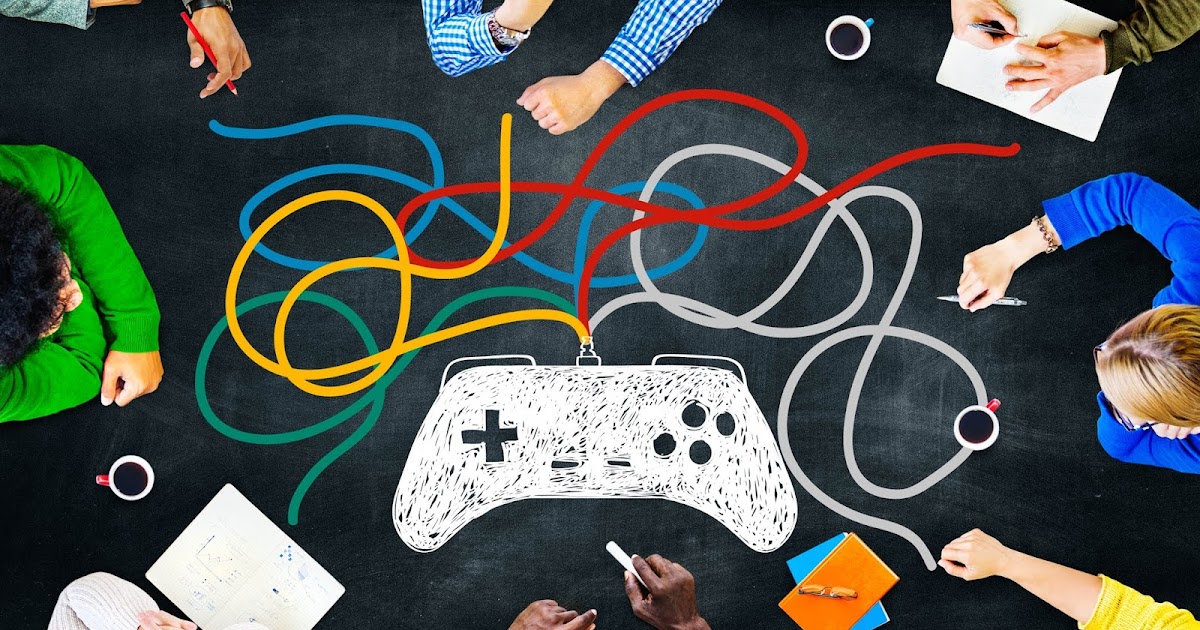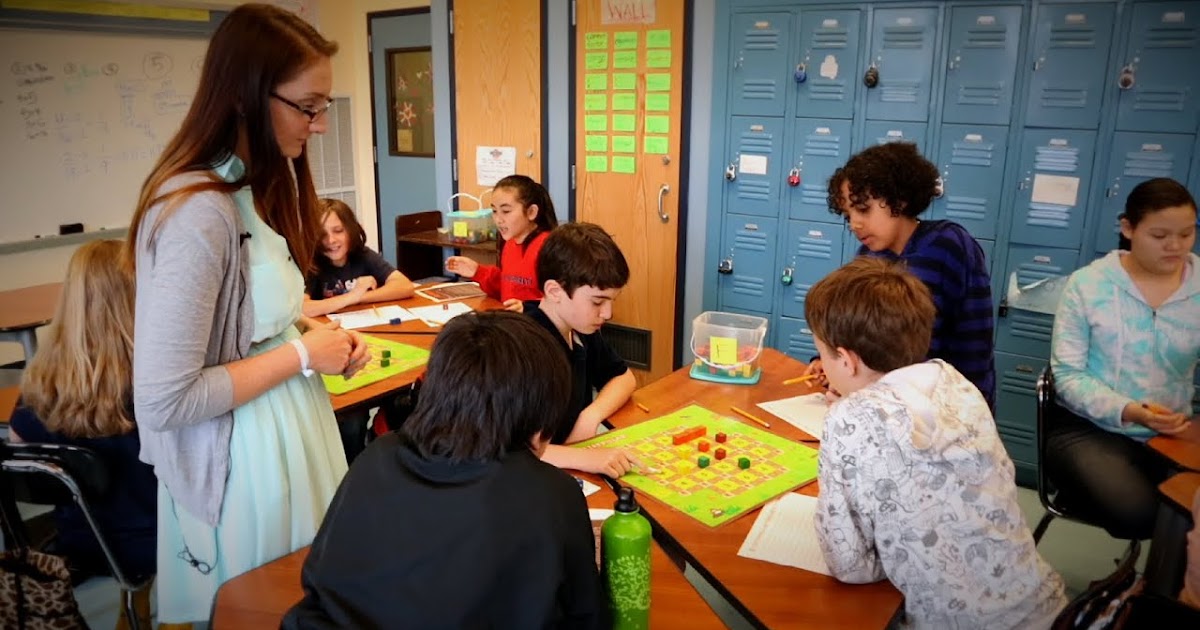Fun Learning: How Video Games Can Be Educational
In today’s digital age, they stand as a testament to the fusion of leisure and learning. We’re about to embark on a journey to explore the remarkable educational potential that lies within the realm of video games. Video games have evolved far beyond their initial status as mere sources of entertainment.
Setting the Stage: The Appeal of Video Games
The magnetic pull of video games is undeniable. With their immersive graphics, engaging storylines, and interactive gameplay, they have captured the hearts and minds of millions worldwide. The appeal lies not only in the thrill of adventure but also in the tantalizing promise of educational growth.
The Educational Potential of Video Games
Beyond their surface allure, video games possess a hidden treasure trove of educational benefits. They are a testament to the idea that learning can be an exhilarating experience. As we delve deeper, we will uncover how video games transform players into learners, effortlessly blending entertainment with education.
The Evolution of Video Games
The journey of video games from being pure sources of entertainment to invaluable educational tools is a story of adaptation, innovation, and the dynamic interplay between technology and pedagogy.
From Entertainment to Educational Tools
Video games have transcended their original purpose as mere distractions. They have become powerful educational tools that can be harnessed to teach a wide array of skills, from problem-solving to history.
Historical Perspective: Early Educational Games
To truly appreciate the educational capabilities of modern video games, it’s essential to explore their origins. Early educational games paved the way for the rich landscape we have today. They were precursors to the gamified learning experiences we now take for granted.
Cognitive Benefits of Video Games
![]()
Improved Problem-Solving Skills
Video games are rife with problems to solve, whether it’s deciphering a cryptic puzzle, navigating a complex maze, or strategizing in a battle. These challenges demand critical thinking, analysis, and creative solutions, enhancing problem-solving skills in players.
Enhanced Critical Thinking Abilities
Critical thinking is not just encouraged but necessitated in many video games. Players must evaluate options, anticipate consequences, and make decisions that affect the game’s outcome, fostering strong critical thinking abilities.
Spatial Awareness and Strategy Development
Spatial awareness and strategic thinking are honed as players navigate intricate virtual worlds. They must consider their position, anticipate enemy movements, and devise tactical maneuvers. This enriches spatial awareness and strategic thinking, skills that can extend to real-world scenarios.
Educational Genres in Video Games

Adventure and Exploration Games
Adventure and exploration games whisk players away on quests, revealing the rich tapestry of history, geography, and culture. Whether it’s exploring ancient civilizations or retracing the steps of legendary explorers, these games offer a thrilling educational experience.
Puzzle Games and Brain Teasers
Puzzle games engage players in intellectual challenges. They require meticulous problem-solving, logical thinking, and the development of analytical skills. In solving puzzles and brain teasers, players become more adept critical thinkers.
Simulation Games for Real-World Scenarios
Simulation games replicate real-world scenarios, allowing players to step into the shoes of professionals like pilots, doctors, or architects. This hands-on experience nurtures practical skills and fosters an understanding of complex systems and processes.
Gamification in Education
Defining Gamification and Its Applications
Gamification redefines how we approach learning. By incorporating elements like points, rewards, and challenges, education becomes a thrilling journey that motivates students to explore, experiment, and excel.
Case Studies: Gamification Success Stories
Real-world examples underscore the effectiveness of gamification in education. From language learning apps that reward correct answers to educational platforms that grant badges for achievements, these case studies provide tangible proof of gamification’s power.
Learning Through Storytelling
Narrative-driven games captivate players with their rich storytelling, and this medium is a powerful tool for education.
Narrative-driven Games as Educational Tools
Storytelling is the heart of human communication. In video games, narratives immerse players in historical events, cultural experiences, and moral dilemmas. Players aren’t passive observers but active participants, making learning a dynamic and engaging experience.
Engaging with History and Literature
Video games transport players to historical eras, letting them witness significant events and interact with famous historical figures. They also breathe life into literary classics, making works of fiction a tactile, interactive learning experience.
STEM Learning with Video Games

Learning Science and Math Concepts
Science and math can be intimidating subjects for many students, but video games make them accessible and enjoyable. Games often require players to apply scientific principles and mathematical concepts to solve in-game challenges.
Virtual Laboratories and Scientific Discovery
Virtual laboratories provide a safe, risk-free space for scientific exploration. Students can conduct experiments, manipulate variables, and make groundbreaking discoveries, all within the confines of a game.
Language and Communication Skills
Learning Languages through Games
Traditional language learning methods can be monotonous, but video games make the process engaging. Players are immersed in language, requiring them to understand and use it to progress through the game.
Communication and Social Interaction in Multiplayer Games
Multiplayer games go beyond competition; they demand communication, teamwork, and coordination. Players learn to express themselves clearly, listen actively, and cooperate effectively in a digital, interconnected world.
Cultural Awareness and Geography
Video games provide an opportunity to explore diverse cultures and gain a better understanding of the world’s geography.
Exploring Different Cultures and Traditions
Video games allow players to travel the globe, engage with diverse cultures, and appreciate their traditions, languages, and histories. It’s a passport to cultural awareness.
Geography-Based Learning Adventures
Geography-based games invite players to navigate the world, testing their knowledge of countries, capitals, and landscapes while igniting a curiosity about the planet’s diverse geography.
Time Management and Planning
Simulation games impart valuable skills in time management and strategic planning.
Resource Management in Simulation Games
Simulation games task players with managing resources, time, and assets. This provides practical experience in resource allocation, time management, and strategic planning.
Developing Organizational Skills
Players must juggle in-game tasks, inventories, and schedules, instilling them with organizational skills that readily transfer to real-world applications.
Emotional Intelligence and Empathy
Learning Empathy through Character-Driven Games
Character-driven games invite players to embody different personas, experiencing the world through their eyes. This exercise in empathy fosters emotional intelligence.
Dealing with Emotional Challenges
Video games address emotional challenges, offering a safe space for players to explore complex emotions and develop coping strategies, mirroring real-life emotional growth.
Problem-Based Learning
Video games encourage problem-based learning, a pedagogical approach rooted in authentic, real-world challenges.
Solving Real-World Problems in Video Games
Video games simulate complex real-world problems, requiring players to devise solutions. This bridges the gap between virtual problem-solving and real-world application, a transferable skill that is invaluable.
The Bridge Between Virtual and Actual Problem Solving
The problem-solving skills honed in the virtual realm readily transfer to real-life situations, enabling players to approach challenges with a creative and analytical mindset.
Adapting Video Games for the Classroom

Educators play a vital role in harnessing the educational potential of video games.
The Role of Teachers and Instructors
Teachers act as guides, helping students navigate the educational landscape of video games. They bridge the gap between play and learning, steering students towards valuable experiences.
Educational Game Selection and Integration
Selecting the right games and seamlessly integrating them into the curriculum is an art that educators must master for effective learning. It’s not just about playing games but using them as a pedagogical tool.
Gamified Assessment and Feedback
Gamification extends to assessments, transforming quizzes and exams into engaging challenges that motivate students to excel.
Gamified Quizzes and Assessments
Assessments become interactive challenges, motivating students to excel. Correct answers are rewarded, and progress is tracked in an engaging manner.
Tracking Progress and Providing Feedback
Real-time data from video games can inform educators, allowing them to offer personalized feedback that optimizes individual learning outcomes. It’s a data-driven approach to pedagogy.
Potential Drawbacks and Concerns
While video games offer numerous educational benefits, it’s essential to address potential drawbacks and concerns.
Screen Time and Health
The lure of video games can lead to excessive screen time, impacting physical health. Maintaining a balance between screen time and physical well-being is crucial.
The Importance of Age-Appropriate Games
Choosing age-appropriate games is crucial for young learners. The content must align with their developmental stage to ensure safe and appropriate experiences.
Parental Guidance and Monitoring

Parents play a crucial role in helping their children strike a balance between video game play and other activities.
Balancing Playtime and Learning
Parents must help their children balance the allure of video games with other essential activities. It’s about finding equilibrium between play and study.
Strategies for Responsible Gaming
Parents can implement strategies for responsible gaming, ensuring that their children’s video game experiences are both enjoyable and safe. These strategies help cultivate a balanced and healthy relationship with gaming.
The Future of Educational Gaming
Advancements in Technology and Learning
Cutting-edge technologies, such as virtual reality, augmented reality, and artificial intelligence, are reshaping the way we learn through games. The future of educational gaming is characterized by immersive experiences and personalized learning.
Emerging Trends in EdTech and Gaming
The world of educational technology and gaming is continuously evolving. Staying informed about emerging trends is essential for educators, parents, and students alike.
Success Stories and Case Studies
Examples of Educational Games That Made an Impact
Discover the remarkable success stories of educational games that have transformed learning, turning complex subjects into engaging and enjoyable experiences.
Testimonials from Educators and Students
Hear from educators and students who have experienced the transformative power of educational gaming firsthand. Their testimonials serve as a testament to the effectiveness of this innovative approach to education.
Tips for Maximizing the Educational Benefits
Choosing the Right Games
Selecting the right games is essential. Aligning game choices with learning objectives and individual interests and needs is key to maximizing educational benefits.
Incorporating Video Games into Learning Plans
Discover effective strategies for seamlessly integrating video games into educational curricula. These strategies enhance the learning experience and provide a balanced approach to education.
Conclusion
In conclusion, our journey through the world of educational gaming has unveiled the powerful synergy between fun and learning.
Embracing the Fun and Learning Potential of Video Games
Embracing video games as educational tools is embracing a dynamic, engaging, and innovative approach to learning. It’s an invitation to turn curiosity into knowledge and entertainment into education.
The Ongoing Debate and Exciting Possibilities
As the debate around the role of video games in education continues, we stand on the cusp of exciting possibilities. The integration of fun learning is not a challenge but an opportunity, and the future of education is dynamic, digital, and delightfully engaging.
Frequently Asked Questions (FAQ) About Fun Learning: How Video Games Can Be Educational
What are educational video games, and how do they differ from traditional video games?
Educational video games are designed with a primary focus on learning, often incorporating subject matter or skill development into gameplay. Unlike traditional video games primarily meant for entertainment, educational games aim to impart knowledge and skills while engaging players.
Can educational video games truly be as effective as traditional teaching methods?
Educational video games can be highly effective, as they engage learners in an interactive and immersive way. Studies have shown that well-designed educational games can improve retention, problem-solving abilities, and critical thinking, making them a valuable addition to traditional teaching methods.
How can I ensure that the educational video games my child plays are appropriate and safe?
To ensure appropriateness and safety, parents should check game ratings, read reviews, and consider the content and subject matter. Some organizations, like Common Sense Media, provide guidelines and reviews for parents to make informed decisions about the games their children play.
Are educational video games only suitable for children, or can adults benefit from them as well?
Educational video games are not age-restricted; they cater to learners of all ages. Many games address a wide range of subjects, from language learning to professional skill development, making them relevant and beneficial for adults seeking self-improvement or continuing education.
Do educational video games have a place in formal education, like schools and universities?
Yes, educational video games are increasingly finding a place in formal education. They are used in classrooms to enhance the learning experience, reinforce key concepts, and make education more engaging. Teachers are integrating these games into their curricula to improve student outcomes.
Can playing educational video games for extended periods be detrimental to one’s health or lead to addiction?
While educational games offer numerous benefits, excessive screen time, like any activity, can have health implications. It’s important to strike a balance between gaming and physical activities. Moderation and parental guidance are crucial to prevent addiction and ensure a well-rounded lifestyle.
How can educators effectively integrate educational video games into their curricula?
The integration of educational video games into curricula involves careful planning and alignment with learning objectives. Educators should identify games that complement their teaching goals, offer guidance during gameplay, and use games as supplementary tools to reinforce classroom learning.
Are there specific genres of educational video games tailored to different subjects or skills?
Yes, educational video games span various genres, catering to different subjects and skills. For example, adventure games can teach history, while puzzle games enhance critical thinking. Simulation games often simulate real-world professions, and language games focus on language acquisition.
Can students with different learning styles and abilities benefit from educational video games equally?
Educational video games are designed to accommodate various learning styles and abilities. They offer adaptability and customization, allowing students to progress at their own pace and providing multiple paths to success, making them inclusive and accessible to a wide range of learners.
How can parents and teachers monitor and measure the progress of students when using educational video games?
Parents and teachers can use progress tracking features within educational games to monitor student performance. Many games provide data on completed levels, scores, and areas of improvement. Additionally, combining game data with traditional assessments can provide a comprehensive view of progress.
What is the cost associated with using educational video games, and are there affordable options available?
The cost of educational video games can vary widely, with some games being free and others requiring a purchase. Many educational games offer free trial versions or have minimal fees. Additionally, educators often have access to discounts or educational licenses to make these resources more affordable for schools and students.
In the section discussing the cognitive benefits of video games, we explored how these interactive experiences can enhance problem-solving skills, critical thinking abilities, and spatial awareness. The article dives deep into how the immersive nature of video games can stimulate cognitive functions, leading to holistic development in individuals. To understand more about the impact of cognitive development in gaming, check out our article on “Indie Games: Discovering the World of Independent Developers” for more.
The world of educational gaming is expanding rapidly, with numerous studies and articles shedding light on its profound impact on modern education. For a comprehensive perspective on the latest trends and insights in educational gaming, explore the recent blog post on Medium. This informative piece delves into the transformative potential of educational gaming and its growing relevance in contemporary educational practices.




Uma resposta